Tune Tag #10 with Matt Thompson of "Critical Hit Parader": Rush, ABBA, Zappa, Bowie, Genesis, NIN, Pain of Salvation
Letter Rock! From A to Z on this Tune Tag, Matt and I cover the alphabet...Yabba Dabba ABBA Zappa, and then some! Ork to metal to prog giants, we leave no tern unstoned. Oops, now more letters: PETA!
Tune Tag moves to every Tuesday for….you guessed it: Tune Tag Tuesday! Today, we welcome into the TT Arena, Matt Thompson! Tag! You’re it, Matt!
Matt: “My twin passions are music and tabletop roleplaying games (TTRPGs). I am a panelist on the Contrarians YouTube channel, and I publish the Critical Hit Parader Substack and zine.
“Critical Hit Parader is focused on the intersection of rock music and tabletop roleplaying games. The first issue of the Critical Hit Parader zine was successfully crowdfunded February 2023. Subscribe to this newsletter to get publication news about the zine, along with unique written and audio content, including the Appendix LP podcast.”
Matt’s Song #1 sent to Brad: Pain of Salvation, “Pilgrim,” 1998
Matt’s rationale: I sent Brad “Pilgrim” by Pain of Salvation as my first song for three reasons:
I think PoS is one of the most important rock bands of the last 25 years; they are consistently interesting, changing, and challenging.
“Pilgrim” highlights singer Daniel Gildenlow (shown below, and center in photo above; his brother, Kristoffer, plays bass with PoS) and his tremendous voice.
Everyone I have shared the song with has liked it, independent of their genre preferences.
Brad’s response: I had never heard or heard of PoS. But, based on the creepy cover, I assumed that what has been called a “progressive metal band” would roar, screech, growl, and over-modulate until the cows came home (do they have cows in Sweden?).
I was impressed by Gildenlow’s voice, his restraint and control, and pleasantly surprised by a captivating song (produced by the band and Anders “Theo” Theander). Now, to the other side of the alps:
Brad’s Song #1 to Matt: ABBA, “Waterloo,” 1974
ABBA’s impressively tight live performance on the Eurovision telecast in ‘74: The song has a relentless propulsive drive, and Agnetha Fältskog and Anni-Frid Lyngstad are so pure and dead-on with their harmonies and unison singing, they’ll let you call them Anna and Frida. If video doesn’t show up, click here to view on YouTube!
The clear-as-crystal production for ABBA started with this song. The guitars are up-front and harder than you’d expect for a band that owns half their home country (and a couple of alps). In my frosh dorm room at college in ‘74, this single rarely left my turntable (and the R.A. rarely quit banging on my door). Sing along! It’s in Swedish!
Matt’s reaction: Brad sent me “Waterloo” by ABBA. The immediate connection is that both ABBA and Pain of Salvation are Swedish bands. Another deep cut connection also came to my mind:
“Waterloo” won the Eurovision Song Contest in 1974. Daniel Gildenlow formed a band that eventually evolved into Pain of Salvation called Reality. Reality entered the Swedish Annual Music Contest “Rock-SM” in 1987, and Daniel won Best Vocalist even though he was only a teenager.
So both bands had success in a European contest as launching points to their careers. Brad:🤯Next level deducing and connecting, Matt!
Back to Matt: I’m an ABBA fan, so I was happy to receive this song. I enjoyed this recent interview Rick Beato did with ABBA’s Björn Ulvaeus, and I’m following what Björn is doing with his Session Studio App.
Brad’s rationale: Pain of Salvation is from Sweden, so ABBA was an obvious choice, as they’re the only other Swedish band I know! I’ve always loved “Waterloo,” and make no mistake, as derivatively and even disposably disco as they became in the late ‘70s into the ‘80s, this song is as power pop as it gets!
Not convinced? Don’t take my word for it. The late, great Greg Shaw (founder of BOMP! Records and Magazine) proclaimed as much in 1978 on his list of All-Time Power Pop Records! Now, the records ABBA continued to produce showed off some occasionally great songs, but their production has always been crystalline and worthy of envy (courtesy of Ulvaeus and Benny Andersson).
Disco factoid: 1976’s “Dancing Queen” has been downloaded over a billion times on Spotify (snide remark just for my frustrated songwriting friends’ benefit: “Gee, I wonder where ABBA will spend their 24¢?”)!
Flashy stage costumes and daring-for-the-time silver platform boots might’ve been another nod to British glam rock band Roy Wood’s Wizzard, whose song “See My Baby Jive” was cited by ABBA as a major influence on “Waterloo,” according to Scotland’s The Sunday Post on May 6, 2014. More about Wood (shown above) and Wizzard from FR&B may be discovered by clicking here.
Fittingly, Wizzard front man Roy Wood provided saxophone and backing vocals for a 1986 “Waterloo” cover by Doctor and The Medics, whose video can be seen by clicking here (watch for Wood on sax, and a cameo by Motörhead’s Lemmy)!
“Waterloo” was written by the Andersson/Ulvaeus pair with their manager, Stig Anderson. At the 50th anniversary celebration of the Eurovision Song Contest in 2005, it was chosen as the best song in the competition’s history. Congrats, gents!
Matt’s Song #2: Frank Zappa, “Florentine Pogen,” 1975
Brad’s response: I have no clue why Matt sent this, which always gives me pause (if not a headache), ‘cause it likely means I’m missing something simple! Parts of the Zappa album, One Size Fits All, was recorded at Finnlevy Studios in Helsinki, Finland (somewhat near ABBA’s home country, Sweden?).
Also, ABBA was on Atlantic Records, while Frank was on his own subsidiary, DiscReet (after selling his first labels, Straight and Bizarre, to Warners about 2 years previous), distributed by Warner Bros., and both Atlantic and Warners were a part of the corporate conglomerate (is there any other kind?) WEA (Warner/Elektra/Atlantic). How label savvy is Matt? If a lot, then this would be an understandable link! Matt, whatcha got?
Matt’s rationale: I then sent Brad “Florentine Pogen” by Frank Zappa from the One Size Fits All album. The connection is that in “Waterloo” the song’s lyrics metaphorically connect a relationship to Napoleon’s defeat at the Battle of Waterloo. Napoleon Murphy Brock is the vocalist on “Florentine Pogen” and plays flute and sax on the album.
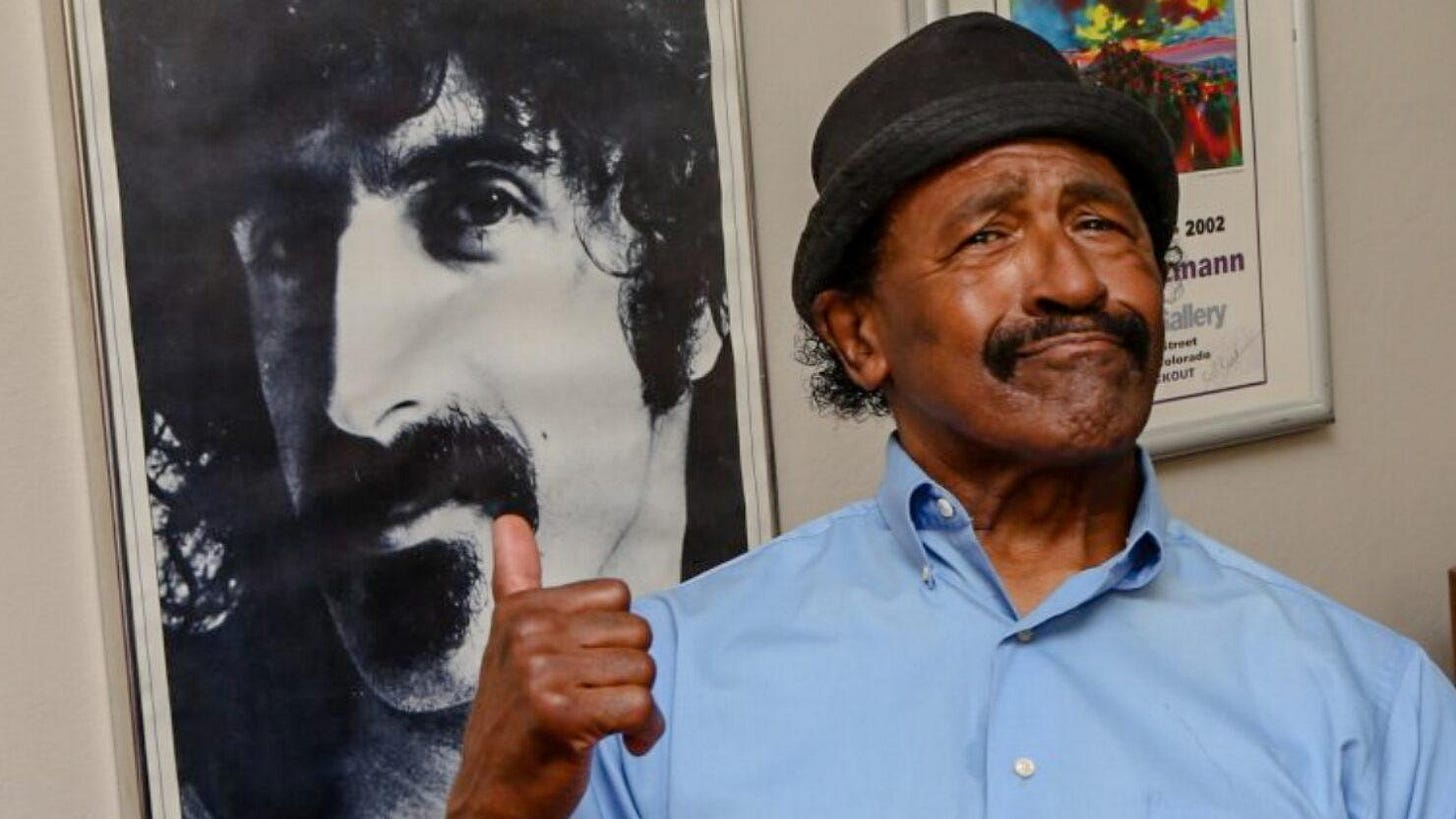
Brad’s Song #2: Genesis, “Turn it On Again” (fr. Three Sides Live), 1982
If video isn’t showing up, please click here to view it on YouTube.
Matt’s reaction: Brad’s second song was “Turn It On Again” by Genesis from the Three Sides Live album. I don’t have this album, but of course knew the song. I’m thinking the connection is Chester Thompson. I know he was a frequent touring drummer for Genesis and Phil Collins, and he was the drummer on the Frank Zappa song I had sent. He also played on Napoleon Murphy Brock’s solo album.🤯Brad: Amazing connection, Matt! I did not know Brock recorded solo!
Brad’s rationale: Chester Thompson played drums on both albums. Plus, “Florentine Pogen” features lyrics that proudly assert, “Chester’s go-rilla, she go oink, Chester’s go-rilla, she go quack,” etc….so, with that, a dead-on nod in the drummer’s direction.
Plus, Genesis’ Duke album (from whence “Turn it On Again” originates) was recorded in late 1979 at Polar Studios in Stockholm, Sweden, a property owned by…altogether now…ABBA! For a behind-the-scenes video peek into the writing and production of the studio version of “Turn it On Again,” click here.
Matt’s Song #3: "The Becoming," Nine Inch Nails, 1994
Brad’s response: The only connection I’m making from “Turn It On Again” to “The Becoming” is the vaguely similar pulsing beginning.
Matt’s rationale: In response, I sent Brad “The Becoming” by Nine Inch Nails from the album The Downward Spiral. My reasoning was a result of thinking about how Genesis maintained their prog-rock inclinations while writing a very accessible pop song. The time signature for “Turn It On Again” is 13/8 in the verses and choruses. The intro to “The Becoming” is also in 13/8 time.
[Brad: No way I’d know that. I haven’t read music since I was a 9-year-old accordion player in 1964! Although, I did just sneak a peek at the above-linked “Making of” video for “Turn it On Again,” and now I know its time signature, but a little too late!]
Brad’s Song #3: David Bowie, “Boys Keep Swinging,” 1979
Matt’s response: Brad then sent me David Bowie’s “Boys Keep Swinging.” I think the connection is the various collaborations and mutual admiration that Bowie and NiN’s Trent Reznor had for each other in the 90s (e.g, sharing tours, recording “I’m Afraid of Americans”, etc.). I love Bowie, so I was quite pleased with this choice.
Brad’s rationale: Adrian Belew played guitar on both “Boys Keep Swinging” and NiN’s “The Becoming.” He also appeared on Zappa’s Sheik Yerbouti album in 1979, the same year as this song. “Boys Keep Swinging” was written by Bowie and Brian Eno, and is from Bowie’s Lodger album, produced by Bowie and Tony Visconti.
Matt’s Song #4: "Distant Early Warning," by Rush, 1984
Brad’s response: I see no connection between “Boys Keep Swinging” and “Distant Early Warning.” No overlapping studio players or producers, 5 years apart in recordings. Labels? RCA and Mercury. Lyrics don’t appear to have similarities.
Matt’s rationale: My final song was “Distant Early Warning” by Rush. The connection here is David Mallet, who directed the videos for both “Boys Keep Swinging” and “Distant Early Warning.” Bowie was a pioneer in creating promotional videos, but Rush was a full-on participant in the video revolution of the MTV era, as well.
Brad responds: Wow. I’m so happy Tune Tag is an exhibition, and not a competition. First of all, that means there’s no wagering involved, but dang, this Matt cat would be running away with it all! Awe-inspiring connection, Matt…truly.
Plus (and you can’t possibly be old enough to know this), but you are so spot-on about Bowie’s pioneering promo vids: When Lodger dropped in late May 1979, I was working at Cactus Records, Houston’s leading vinyl retailer. We had a video monitor installed at the front counter (hanging from the ceiling, as I recall). RCA provided us with ground-breaking videos (remember, this is two years before MTV debuted) for “Boys Keep Swinging” (the one you see above), as well as “D.J.”, seen by clicking here.
RCA Records released the lead single from Lodger, “Boys Keep Swinging” in the UK on April 27, 1979. To promote the song, Bowie appeared on UK’s The Kenny Everett Video Show four days earlier (video seen below). He dressed in a “1950s Mod-style suit” that made him look like a “fresh-faced schoolboy,” according to Nicholas Pegg in The Complete David Bowie, (referring to Bowie’s wardrobe in the RCA promo vid above).
David Mallet, Bowie’s choice to direct the promo video also directed the Everett program. “Boys Keep Swinging” reached #7 on the UK Singles Chart. Due to the song’s gender-bending video and lyrics, RCA refused to release the single in the US.
Brad’s Song #4: The Royal Philharmonic Orchestra, “Fly By Night,” 2012
Brad’s rationale: I wanted to find a cover of one of the earliest Rush songs by an unlikely source. Bingo! This one, written by Neil Peart and Geddy Lee, and recorded by Rush in 1975, is from their second album, Fly By Night. The Philharmonic’s cover comes from their 2012 Plays the Music of Rush album.
Matt’s response: What a way to finish! Brad’s last song was a cover of the Rush song “Fly By Night” by The Royal Philharmonic Orchestra. Readers of my “Critical Hit Parader” Substack tend to be passionate about both music and fantasy/sci-fi.
Therefore, Rush is a “Critical Hit Parader” favorite. I was completely unaware, however, of the album of Rush songs performed by The Royal Philharmonic Orchestra. I enjoyed the whole album, which contains guest guitar solos by Adrian Smith of Iron Maiden and Steve Rothery of Marillion.
Thank you, Brad, for sharing a great collection of songs and for the fun Tune Tag!



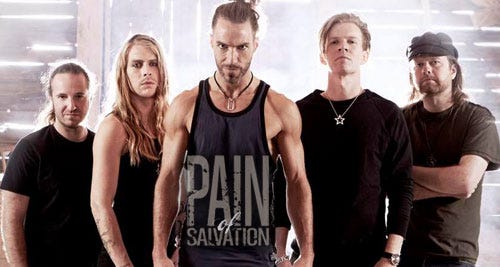


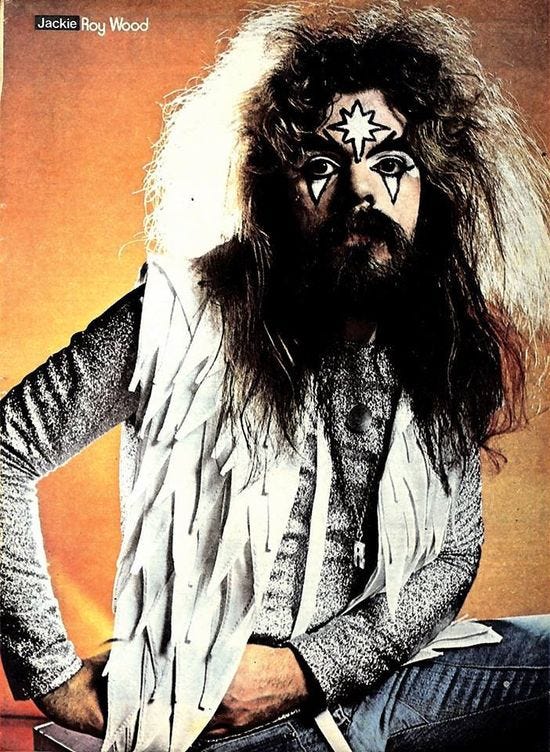
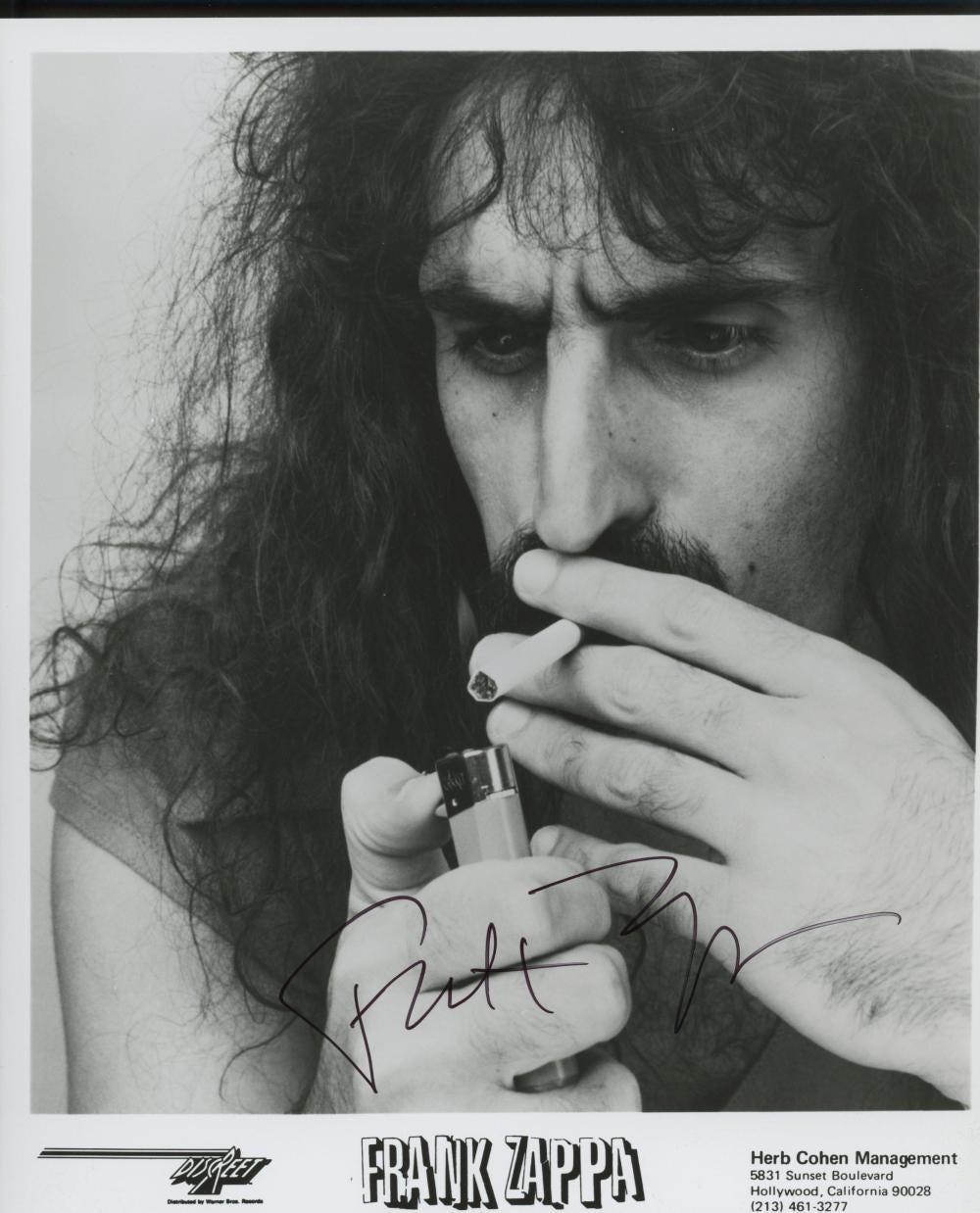

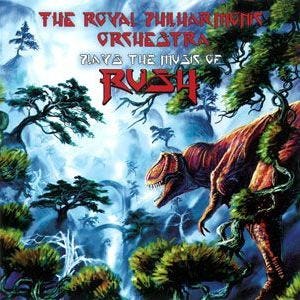



Wow, what an impressive round (and fun to see a TTRPG fan do so well. Represent! :)
Edit: Listening to "Pilgrim" and thinking about gaming connections, I get a definite Warhammer 40K vibe.
This was a lot of fun to read. Great job, guys! I liked how your respective skills and knowledge complemented each other so well. You both added a lot of substance to the mix. Great teamwork!